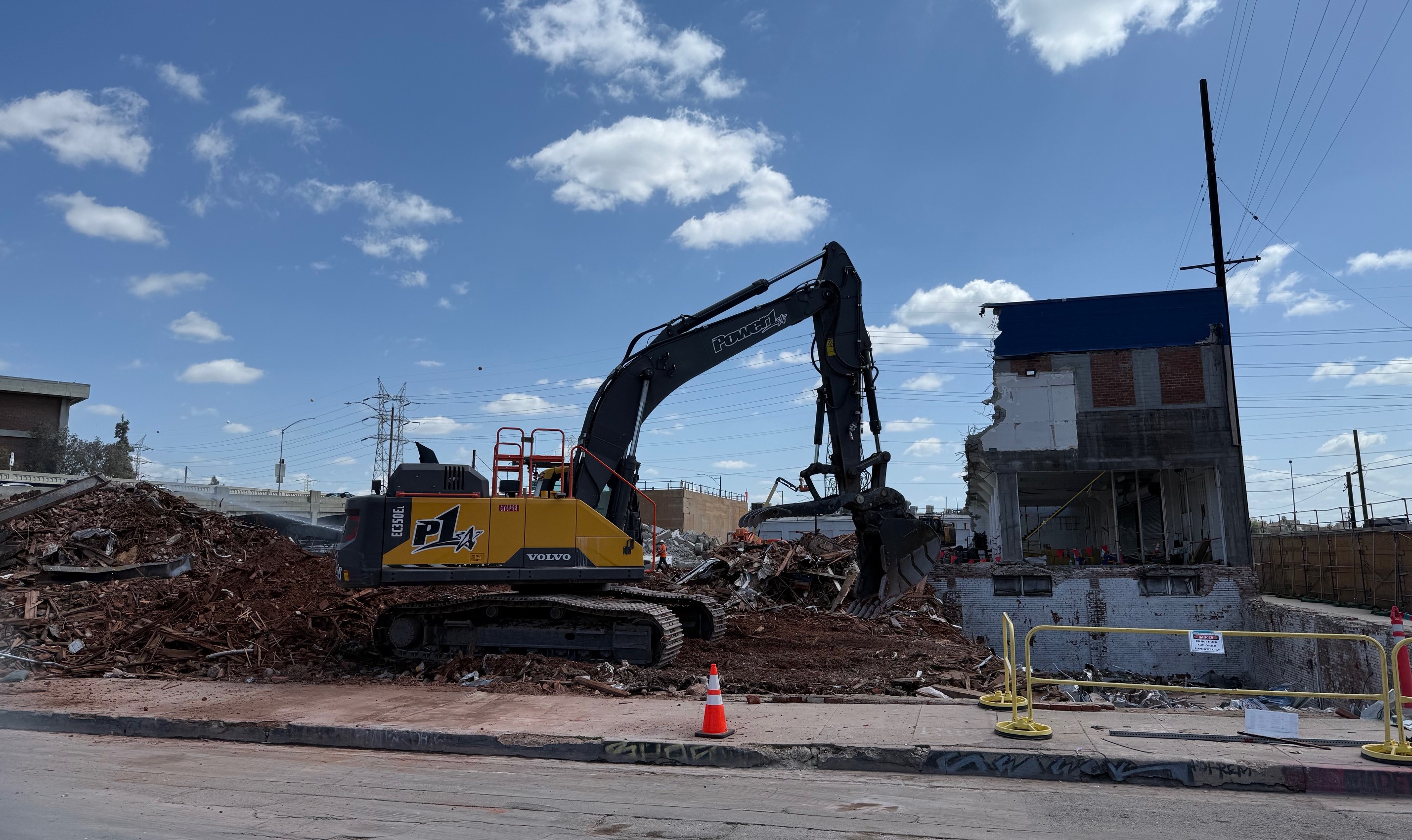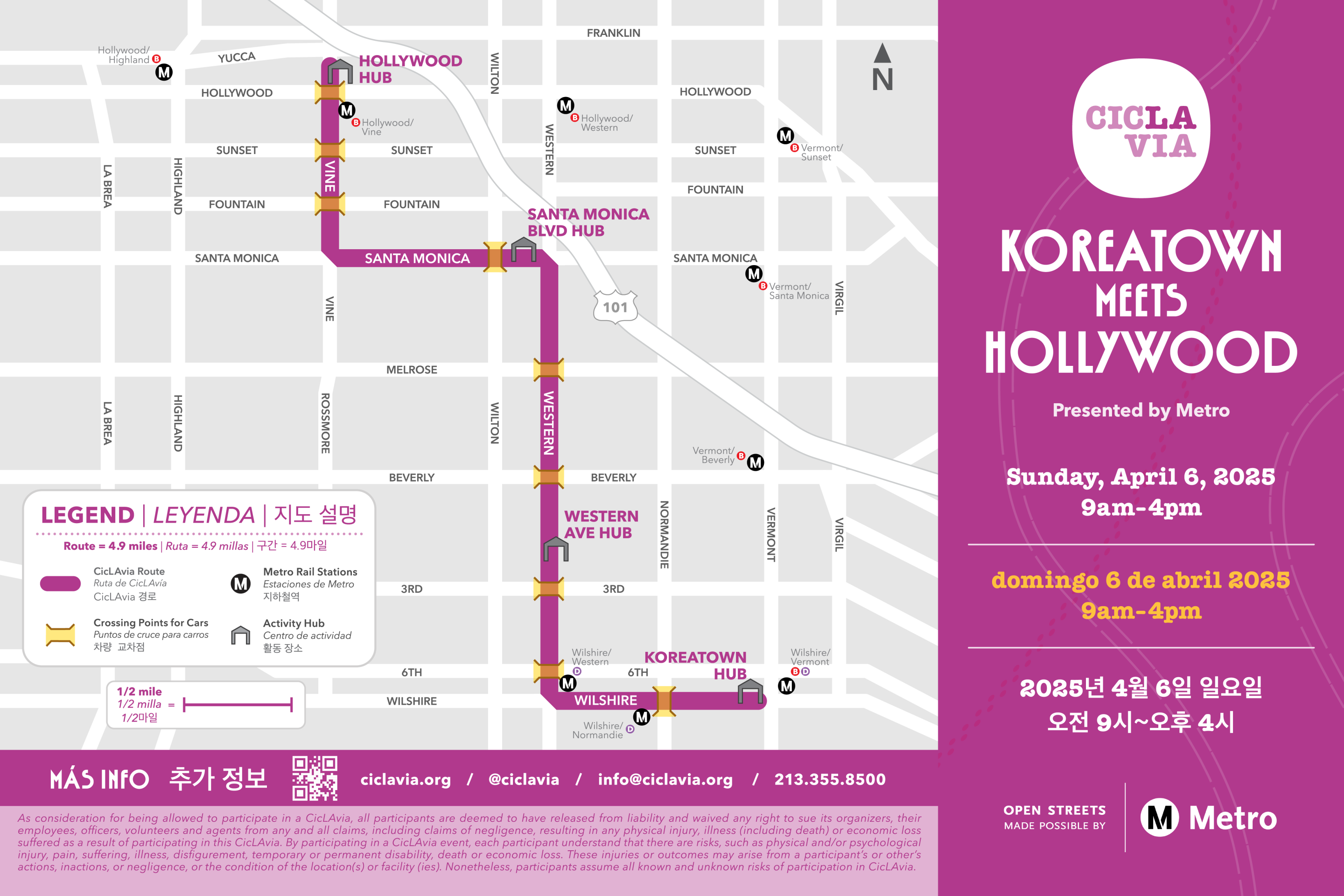
Though we found plenty of fodder this election season, transportation policy never emerged
as a consistent talking point in the presidential race. This is more
than a little surprising, considering the sad state of American
infrastructure and the importance of same to this country's economic
and strategic well-being. Then again, what kind of dialogue can we
expect when one side's position can essentially be summed up in three words, two of which are "drill."
On
this election eve, we turn to an unexpected source for a sober
summation of the future of transport under either a McCain or Obama
administration: the Pacific Shipper, "the Essential Transpacific News
Weekly." In an insider-y feature story posted today, the Shipper susses out some of the main policy differences
between the two candidates, from highways to waterways, and finds
electeds and experts who think each is in for a rude awakening when it
comes to funding.
Perhaps more than any national campaign in recent history, the majorcandidates have staked out very clear and decidedly different stanceson transportation infrastructure investment.
McCain has made criticism of earmarks something of a crusade in hiscampaign, and says he wants to send more decisions on spendingpriorities to the states.
“I believe that a higher share of the taxes collected at the gaspump should go back to the state where those taxes were paid,” theArizona Republican told the American Automobile Association, “and I’ve co-sponsored legislation thatwould allow states to keep almost all of their gas tax revenues fortheir own transportation projects without interference fromWashington.”
“We’ve got a problem,” Mortimer Downey, a former deputy secretary oftransportation in the Clinton administration and an adviser to theObama campaign, told a public forum in Washington last week ontransportation policy. “Infrastructure needs more investment. It isimportant, it is crumbling, and other countries are doing more than weare. We’ve got national issues we need to deal with, and transportationis the critical tool for doing that.”
He said the Obama camp has “a vision” for the next highway bill. “Itshould be a much better bill than the last couple. It shouldn’t have somany earmarks in it,” Downey said.
At the same forum, Douglas Holtz-Eakin, chief economic adviser tothe McCain campaign, said the spending priorities are critical. “Thereis no area where earmarking has been more visible than in highwaybills. We have to get more bang for the buck.”
Downey said the economy will make transportation programs moreimportant. Obama favors, he said, “an economic recovery measure thatwould have infrastructure and get people working on, hopefully, smallprojects that would roll out quickly.”
After
the jump, the Shipper looks at how the next admin might try to finance
the 2009 federal funding package, and what the US Department of
Transportation could look like under each.
How either administration would pay for a highway bill remains an open question.
Obama has endorsed a $60 billion National Infrastructure Bank to invest in projects of a national priority.
McCain dismisses that idea. “The notion that there is a need for aninfrastructure bank is not something the senator supports,” Holtz-Eakinsaid. He called the plan “reminiscent of Fannie Mae and Freddie Mac.”
At the agency level, industry observers believe the two would offer starkly different approaches to regulation.
Industry officials believe an Obama White House would work closelywith the Democratic Congress on such agency-level issues, and a strongmajority in the Senate would clear the way for broader actions in areassuch as “card check” legislation to make it easier for labor unions toorganize workers.
A McCain Department of Transportation, meanwhile, likely would look much like the last eight years under President Bush.
“I think a McCain DOT is going to be very similar to what we havenow,” said the U.S. Chamber’s Kavinoky. “There has been speculationabout Mary Peters staying on as DOT secretary. In that case, I thinkyou would see a lot of consistency between a Bush and a McCainadministration.”
“An Obama administration is starting over; they have to put all newpeople in place, develop reauthorization proposals, that could delaythe process,” she said. “It’s not an easy task to develop legislativeconcepts that could get through (the Office of Management and Budget).”
And
who would head up the next USDOT? The Shipper mentions Downey and
Federal Aviation Administrator Jane Garvey as possibilities. Mary
Peters tops the list of prospects under McCain, according to Congressional Quarterly, which also names Garvey as a potential Obama pick. A Politico piece picked up by Bike Portland
says Reps. Earl Blumenauer and Jim Oberstar have been short-listed by
Obama. And though we'd hate to lose her, New Yorkers have our local favorite.
Regardless of how little time the campaigns have devoted to the issue while on the trail, it will undoubtedly loom large for the next occupant of the White House, one way or another.
Graphic: Pacific Shipper

Niccolo Machiavelli
I
dunno. You could ask Jerry Nadler at the Tri State Transportation
Campaign event on Thursday evening. He knows more than almost anyone
about transportation, urban economics, industry and rail.
Transportation, through the ISTEA, NEXTEA and SAFTEA and/or
SAFETEALU, whatever the acronym, is the only area of federal political
economy where urban, populated, states recoup some of the enormous
amount of money we transfer to the Federal Government in the form of
income taxes and other fees.
This election has been, and continues to be, more about urban versus
rural, city versus exurb, people versus property than any other.
Not for nothing it comes at a time when the last transportation bill
has run out of gas. By next summer, regardless of who is in office, the
transportation bill will have to be re-authorized. At that time the
"donor states" (those who pay more in gas taxes than they receive in
transportation bill transfers) will demand what they determine to be
"equity".
I'm not a big fan of bi-partisanship, I like strong parties that
know what they stand for, but the biggest victory New York has ever won
through bi-partisanship was a result of the D'Amato(R)-Moynihan(D) tag
team who really began the modern split of Federal money between mass
transit and highways allowing for local flexibility in how the money
was spent. Still, the money before that split was a function of
population, not how much oil was burned up in the process.
The argument of the "donor states" really amounts to rewarding those
states that burn more gas per capita with more federal money for
highways so that they can burn more gas. Instead of "donor states" a
more proper appellation would be "gas guzzling states". Their vision of
the future rolls like a money pump. Build more roads, induce more
driving, burn more gas, create more gas tax revenue, receive the
revenue, build more roads, wash, rinse, repeat.
Obama has clearly shown that he knows better and that is why he has
my vote. When he resisted anesthetizing the gas tax against both McCain
and Clinton just before the NASCAR primaries (North Carolina and
Indiana), then won NC and beat the point spread in Indiana, there was
no turning back. He gave the electorate much more credit than I did, he
was right.
In the end this is clearly a Federal issue as it involves and drives
Interstate Commerce within the Constitutional structure. Transportation
funding and planning is also clearly one of our chief economic
disadvantages in international competition with Asia and Europe. Our
labor markets have an extra layer of competition when it comes to
transportation economies. Not only do we have to compete with Hong
Kong, Rotterdam, Marseilles and Hamburg port economies but we also have
to compete with other states and localities within the US. That will be
amplified under a McCain Presidency.
Europe pays more in fuel taxes than the US pays for fuel. What that
allows the Europeans are enormous resources for all sorts of economic
endeavors. Except for the North Sea there is no European oil production
at all. Anything they get from the East (Putin) is subject to taxes and
a vig charged by the Russian Oligarchs.
The next Congress and Administration will have to decide how and
when to access the economic value of fuel taxes. It will not be popular
with most people who own cars (a majority). But in the context of a
severe economic crisis, when other tax issues are in play, it can be
done. But in the end it is an urban issue. Saving fuel is what cities
do, that is what population density allows.
The Republicans are the party of the exurbs and rural areas. Lucky
for them the Constitution favors those areas through Federalism and the
Electoral College. Look at the electoral map. The map is even more
severely divided by county. Low Federal fuel taxes (and ours are about
the lowest in the world) encourage fuel consumption which demands more
oil in the oil patch (Texas, Oklahoma and Alaska). Those states,
despite their free enterprise ideology, simply take gas prices the rest
of us pay and transfer it to their citizens in lower state taxes (and
in the case of Alaska direct money transfers to citizens). Then they
label it "free enterprise" and "fiscal conservatism". The oil patch
states are really a combination of welfare state and OPEC. Like Yemen
and Kuwait, they are oil pumps with flags.





One Comment
Last comment by Niccolo Machiavelli Leave a comment »